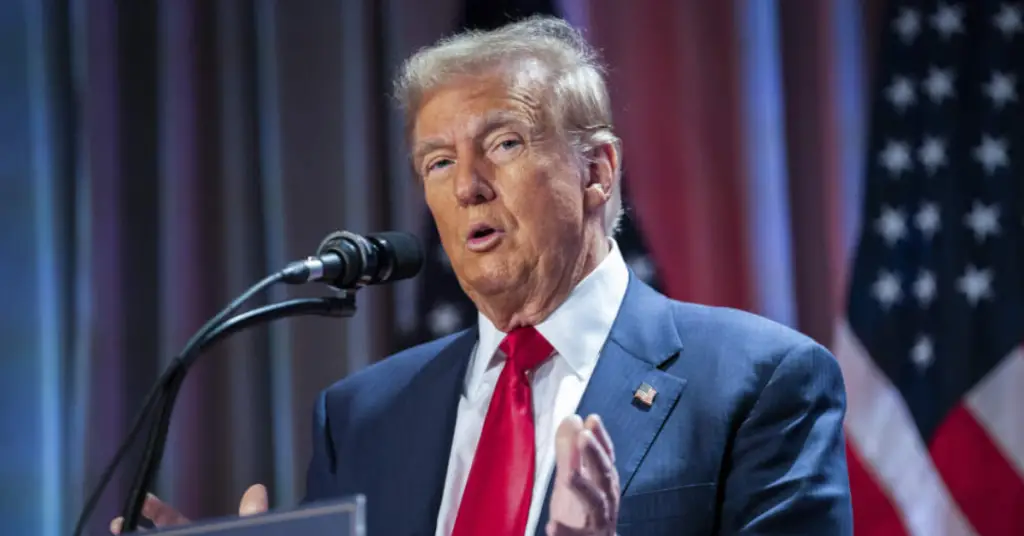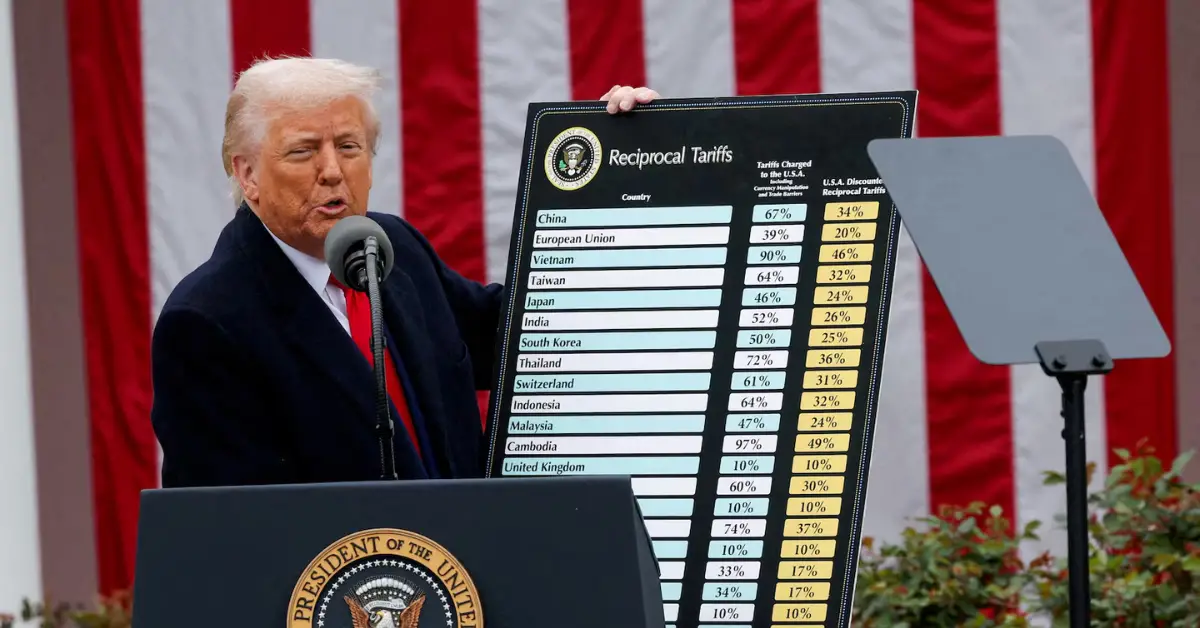Former President Donald Trump’s administration was known for its highly aggressive trade policies, particularly his controversial tariff strategy. His approach, which focused on using tariffs to impose financial penalties on foreign nations, especially China, was seen as a major shift in U.S. trade tactics. However, recent developments indicate a surprising reversal as Trump makes unexpected moves that are causing stock markets to soar.
This shift, which represents a complete overhaul of his previous policies, is surprising financial analysts, who had anticipated the former president to double down on his tariff strategy. The sudden change is causing ripple effects through global markets, with stock indices experiencing significant boosts. But what exactly has changed in Trump’s trade policy, and why is it causing such a positive reaction in the financial world?
Trump’s Tariff Strategy: A Quick Recap
During his tenure, Trump’s “America First” policy led to the imposition of hefty tariffs on goods imported from China, Europe, and other parts of the world. His administration argued that these tariffs would protect U.S. manufacturing jobs, reduce trade deficits, and counter unfair trade practices by foreign nations.
The policy created significant tension, not just with China but also with key allies like Canada and the European Union. This approach led to a trade war with China that disrupted global supply chains, raised prices for U.S. consumers, and sparked retaliation from foreign governments.
Despite these consequences, Trump’s tariff strategy was presented as a necessary step to safeguard U.S. economic interests, particularly against what he perceived as an unfair global trade system. The question now is: why is he stepping back from this tough stance, and how are markets responding?
A Surprising Shift: Trump’s New Policy
Fast forward to the present day, and Donald Trump is showing signs of moving away from his aggressive tariff approach. In a recent statement, he expressed dissatisfaction with the long-term effects of his policies, stating that they had not achieved the desired results. While he has not provided specific details about what changes will take place, the shift in his stance has already caused a major reaction in global financial markets.

The most noticeable impact of this policy change has been the dramatic rise in stock market prices. Investors, who had long been concerned about the negative effects of tariffs on global trade, are now reacting positively to the prospect of a more cooperative trade strategy.
Experts argue that the reversal could help resolve long-standing trade disputes, reduce inflationary pressures caused by supply chain disruptions, and boost international trade. As a result, major stock indices such as the S&P 500, NASDAQ, and Dow Jones have all experienced significant gains since the announcement.
Why Stocks Are Rising: Investor Optimism
The surge in stock prices can be attributed to a number of factors. Firstly, the reduction in trade barriers is expected to lower costs for U.S. businesses, particularly those that rely heavily on imports. By removing tariffs, companies that import goods from overseas will no longer face higher prices, which could result in lower production costs and improved profitability.
Secondly, the prospect of improved trade relations with China and other nations is boosting investor confidence. The trade war between the U.S. and China has been a significant source of uncertainty for global markets. Trump’s pivot away from the tariff-heavy strategy is seen as a move toward a more predictable and stable trade environment.
Thirdly, the possibility of reducing inflationary pressures is another key factor driving market optimism. For months, supply chain issues and rising production costs have led to inflationary concerns. By lifting tariffs, the cost of goods could decrease, helping to bring down inflation and ease the pressure on U.S. consumers.
Finally, the positive market reaction reflects a broader sentiment that Trump’s policy change could lead to increased global economic growth. With fewer trade restrictions in place, businesses and governments may be more inclined to engage in cross-border investments and trade, which would benefit the global economy as a whole.
The Global Impact: Is It All Smooth Sailing?
While the market reaction has been overwhelmingly positive, some analysts caution that this policy shift may not be a complete solution to the challenges facing the global economy. The effects of tariffs on the U.S. economy are complex and multifaceted, and there are concerns that completely dismantling them may create new problems.
One concern is that removing tariffs too quickly could lead to a flood of cheaper imports, which may hurt domestic manufacturers who are already struggling to compete with foreign products. While lower prices on imported goods may benefit consumers in the short term, U.S. manufacturers could face even more intense competition, potentially leading to job losses in certain sectors.
Moreover, while improving relations with China and other trading partners could reduce tensions, it is not a guarantee that these countries will suddenly become more cooperative. Long-standing issues, such as intellectual property theft, forced technology transfers, and trade imbalances, will still need to be addressed through negotiations.
What’s Next? The Road Ahead for Trump’s Trade Policy
The full impact of Trump’s decision to reverse his tariff strategy will take time to unfold. While markets are reacting positively in the short term, the long-term effects will depend on the specific measures Trump implements moving forward. Will he fully abandon his tough stance on tariffs, or will he look to implement new trade policies that offer a more balanced approach?
At this stage, it’s unclear whether Trump’s trade strategy will continue to evolve or if it was simply a one-off shift in his policy. However, the possibility of renewed trade negotiations and the potential for improved global relations have certainly created a sense of optimism in the financial markets.
In the meantime, businesses, investors, and global leaders will be watching closely to see how the former president’s decisions unfold. Will this be the beginning of a new era of trade relations, or will Trump return to his previous hardline approach? For now, the markets are cheering the change, and many hope that it will lead to more positive developments in the future.
Disclaimer: This article has been meticulously fact-checked by our team to ensure accuracy and uphold transparency. We strive to deliver trustworthy and dependable content to our readers.




